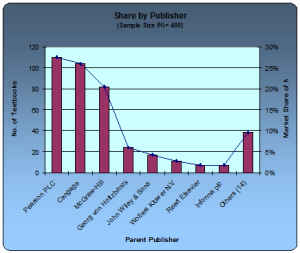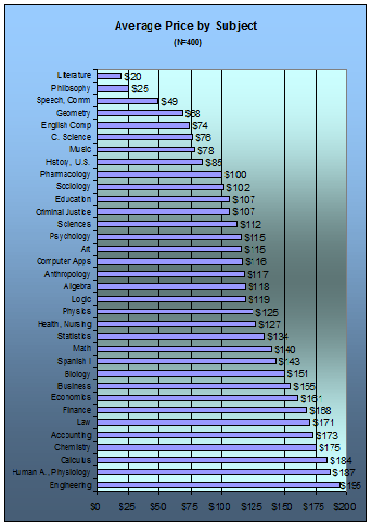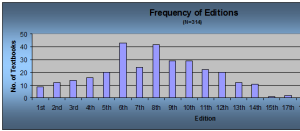Download the Textbook:
All posts by quasarquark
§ Butler, "Wireless Networking in the Developing World" (2012)
Read Online or Download/Read Full Screen/Save to Google Drive.
• Original Source: Network Resource Start-up Center
Print Version $$ at Amazon.com
**************************************
§ Kent, "Freedom from Want: The Human Right to Adequate Food" (2005)
University of Cape Town, "Introduction to Powerpoint© 2007"
Repost:"Giving it away for free: sharing really is caring in the open education movement"
Giving it away for free: sharing really is caring in the open education movement
By Ruth Jelley, La Trobe University and Christopher Scanlon, La Trobe University
The New York Times dubbed 2012 the year of the MOOC. And for many, the seemingly unstoppable rise of Massive Open Online Courses – courses which are offered for free by prestigious universities – is where the discussion about open education begins and ends.
But MOOCs are only the most visible part of a larger movement, one that is slowly but surely transforming the way we do education and think about educational products and services.
Welcome to the world of open educational resources (OER).
OERs include everything from peer-created and edited texts and ebooks to sound recordings and videos that are licensed for open use and re-use. Where publishers normally impose hefty fees (mainly paid for by students) for the use of their products and services, and impose restrictions on how content can be used, the ethos of the open educational resource movement is share and share alike.
OERs are created in open formats rather than those that are owned by large companies and distributed under open licence regimes such as Creative Commons.
Rather than locking users into a particular format or a particular publishing ecosystem, such as iTunesU, the OER movement encourages experimentation and reuse via the open web. More particularly, the OER movement seeks nothing less than a revolution in breaking down the barriers to sharing knowledge, especially those barriers that separate the developed and developing worlds.
It sounds good, but is OER pie-in-the-sky thinking? Why would anyone spend their valuable time developing content only to give it away? Surely only the most utopian optimist high on the fumes of the internet could imagine that OERs will have a life.
There are many reasons why the future is bright for open educational resources. The model of commercial publication of academic research, where publicly funded research is locked up and sold by commercial publishers, is increasingly coming under challenge. And it’s not just a motley collection of annoyed academics, either.
Research bodies in countries including Australia the US and the UK are insisting on open access to research as a condition of their funding. If widely adopted, developing open research resources won’t just be good practice. Increasingly it will be a requirement of funding.
For example, in October last year, the Australian Research Council announced that it was looking at mandating open access for scientific research that it funds.
Similarly, this year US Office of Science and Technology Policy Director John Holdren issued a memo to ensure that Federal agencies with more than US$100 million in research and development expenditures to make the results of federally funded research freely available to the public within one year of publication.
The move towards open access isn’t restricted to the education sector. The Australian Attorney-General has endorsed a recommendation that Australian government agencies license their Public Sector Information under a Creative Commons attribution licence.
While the flurry of activity around open access might seem new, OER isn’t new at all. It’s simply a new term for a set of practices and ideas that are as old as Socrates. What we now call “higher education” has for most of human history been based on a gift economy where intellectuals and those with intellectual training essentially gave away the fruits of their labour — or did so without expectation of gain.
That started to change in the latter half of the twentieth century when education and educational services and products came to be regarded as products, much like any other. Ever since, the costs of education have skyrocketed, putting quality education out of reach for all but the most privileged.
The OER movement seeks to use the internet to reverse this trend. It’s about returning us to an intellectual culture that more closely resembles gift exchange.
Australian institutions have jumped on the open education bandwagon but not in a way that embraces these aspirations – we’re still looking at it as an education-as-service model. In doing so, we could be at risk of closing ourselves off from the real purpose of the open education movement.
Ruth Jelley is affiliated with the Open Education Working Group at La Trobe University and is employed by the Faculty of Business Economics and Law to investigate OER implementation.
Christopher Scanlon does not work for, consult to, own shares in or receive funding from any company or organisation that would benefit from this article, and has no relevant affiliations.
![]()
This article was originally published at The Conversation.
Read the original article.
A Textbook Price Study: 90% Ownership and Average Prices
 In 1915 the most expensive textbook was about $2.50 for a Geometry textbook. (See “Textbook Prices in 1915“) That is about $54 in today’s dollars. Most geometry books today are around $70, or 30% above the price index rate. More interesting, most of the textbooks in 1915 cost $1.50, which translates to $22 today. Yet, based on the sample of 400 textbooks sold between 2010 and 2012 on Amazon.com (considered one of the cheapest sources of textbooks), the average price is $133 per textbook, or a staggering 6 times above the cost-of-living index rate. Most textbooks range between $100 and $200 (80%). The primary reason that they cost so much is the ever increasing concentration of the textbook publishing industry through hundreds of acquisitions, resulting in the elimination of price competition, the established policies of schools that inhibit alternatives sources of textbooks, and somewhat the lack of awareness of professors about the cost of college textbooks they adopt for their classes. There may be others, but those are the basic reasons that allowed textbook costs to soar for the past 100 years.
In 1915 the most expensive textbook was about $2.50 for a Geometry textbook. (See “Textbook Prices in 1915“) That is about $54 in today’s dollars. Most geometry books today are around $70, or 30% above the price index rate. More interesting, most of the textbooks in 1915 cost $1.50, which translates to $22 today. Yet, based on the sample of 400 textbooks sold between 2010 and 2012 on Amazon.com (considered one of the cheapest sources of textbooks), the average price is $133 per textbook, or a staggering 6 times above the cost-of-living index rate. Most textbooks range between $100 and $200 (80%). The primary reason that they cost so much is the ever increasing concentration of the textbook publishing industry through hundreds of acquisitions, resulting in the elimination of price competition, the established policies of schools that inhibit alternatives sources of textbooks, and somewhat the lack of awareness of professors about the cost of college textbooks they adopt for their classes. There may be others, but those are the basic reasons that allowed textbook costs to soar for the past 100 years.
Based on a sample of 400 printed textbooks* sold by Amazon.com from the spring of 2010 through the spring of 2012:
- These 400 textbooks, covering 36 subjects, cost an average of $133, standard deviation is $36. The most expensive textbook was a $256 chemistry textbook. Chemistry, physics, business law, human anatomy, accounting, finance, math, economics, and calculus all had textbooks that cost more than $200.
- The subjects with the highest average cost were, in descending order, Engineering, Human Anatomy, Calculus, Chemistry, and Accounting.
- These 400 textbooks, on average, rose 4.4% from 2010 to 2012. The STEM (science, technology, engineering, and math) textbooks rose 10.2% for the same period.
- Seventy six percent of the textbooks were in their 4th to 13th edition.
- Psychology was the most popular textbook making the top 100 for all four semesters, followed by biology, business, and chemistry.
- The top three parent publishers, Pearson, Cengage, and McGraw-Hill accounted for 74% of the textbooks sold, each with over a 20% share . The other parent publishers (Georg von Holtzbrinck, John Wiley & Sons, Wolters Kluwer N.V, Reed Elsevier, Informa plc) provided 17%, and 14 other publishers, who accounted for the remaining 9%, had a 6% or less share. (As a side note, another Textbook Equity study found that gross margin on textbooks by these publishers range from 68 to 72%. There is plenty of money left over for extensive marketing and overhead salaries.)

______________________________________________
*Source of Data: Amazon.com Top 100 Textbooks Sold, Spring 2010 – Spring 2012.
How MOOCs are derailing Open Education: George Siemens ICDE World Conference keynote
 “A pioneer of Massive Open Online Courses (MOOCs), George Siemens of Athabasca University, Canada, is one of the impressive list of keynote speakers confirmed for ICDE’s World Conference to be hosted by Tianjin Open University, China, 16-18 October 2013. Siemens contends that the most prominent MOOCs are failing the ideals of the Open Education movement.”
“A pioneer of Massive Open Online Courses (MOOCs), George Siemens of Athabasca University, Canada, is one of the impressive list of keynote speakers confirmed for ICDE’s World Conference to be hosted by Tianjin Open University, China, 16-18 October 2013. Siemens contends that the most prominent MOOCs are failing the ideals of the Open Education movement.”
Experiments in Open Education and Active Learning: A Report from the Celebration of Teaching
“I have long regarded scholarship as the noblest aspect of academia– the scholar’s tenacity in identifying, acknowledging, addressing and building on the intellectual contributions of others. I have not experienced the same profound sense of community among my colleagues in the education realm, however – I have largely been a lone wolf. Now there has been a profound shift in my mindset – I use and build on the educational production of others; I do it openly on public sites, of which I am proud rather than embarrassed; I contribute back, and my students see and learn from this practice of scholarly appreciation, and are even encouraged to contribute to it through their own content creation and sharing. This opportunity for “scholarship” in educational practice is what, as an educator and scholar, I find most exciting about this nascent and exploding online education movement. ” – Professor Doug Fisher, Vanderbilt University.
Experiments in Open Education and Active Learning: A Report from the Celebration of Teaching
Penguin agrees to $75M settlement in Apple iBooks price fixing lawsuit
Why can’t everyone be a good corporate citizen?
Book publisher Penguin announced on Wednesday it has reached a $75 million “comprehensive agreement” with U.S. State Attorneys General and private class plaintiffs over e-book price fixing allegations connected to Apple and its iBookstore for iOS.
Apple goes to court on June 3 for allegedly colluding in this price-fixing scheme., prefering to have their day in court instead of settling with the attorney general. Why can’t everyone be a good corporate citizen?
New Open Education Organization – ICORE International Council for Open Research and Education
 Newly founded international open research and open education organization. First meeting held in Rome, May 15th, 2013.
Newly founded international open research and open education organization. First meeting held in Rome, May 15th, 2013.
“ICORE aims to support the design and implementation of innovative strategies, instruments and services for facilitating Open Research and Open Education such as Open Access, Open Educational Practices and Resources.”


